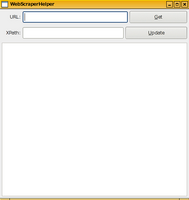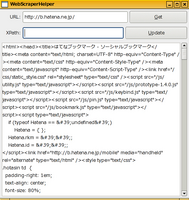またまた適当クオリティですが...
lang/perl/Net-Kotonoha - CodeRepos
使い方は...
use warnings;
use encoding 'utf-8';
use Net::Kotonoha;
use Data::Dumper;
use Encode;
#binmode(STDERR, ':encoding(shiftjis)');
my $kotonoha = Net::Kotonoha->new(
mail => 'xxxx@example.com',
password => 'xxxxxxx',
);
# 新着コト一覧
warn Dumper $kotonoha->newer_list;
# 最近のコト一覧
#warn Dumper $kotonoha->recent_list;
# コト番号120235を取得
my $koto = $kotonoha->get_koto(120235);
# タイトル表示
warn $koto->title;
# ○ユーザ一覧
warn Dumper $koto->yesman;
# ×ユーザ一覧
warn Dumper $koto->noman;
# 回答(0:未回答, 1: ○, 2:×, コメントは省略可能)
$koto->answer(1, 'けもたい');
# 自分の回答
warn Dumper $koto->answer;
※一覧系の戻りはハッシュの配列こんな感じ...
まぁ、UIで遊ぶサービスですから、あまり使い道はないかもしれませんが...
追記
cpanに入れてありますので「cpan Net::Kotonoha」で入ります。








